Historical Interpretation
Historical interpretation is the process of understanding and analyzing past events, people, and societies in order to make sense of the past and its relevance to the present. It involves examining primary and secondary sources, considering different perspectives, and forming informed conclusions about historical events and their significance.
Key Concepts
- Primary Sources: Original documents or artifacts created during the time period being studied, such as letters, diaries, photographs, and official records.
- Secondary Sources: Interpretations and analysis of primary sources by scholars and historians, such as books, articles, and documentaries.
- Perspectives: The various viewpoints and beliefs held by different individuals or groups in the past, which influence how historical events are understood and portrayed.
- Historiography: The study of how history has been written and interpreted over time, including the biases and motivations of historians.
- Critical Thinking: The ability to evaluate and analyze historical evidence and arguments in a logical and reasoned manner.
Study Guide
To develop a deeper understanding of historical interpretation, consider the following study guide:
- Read primary sources from different time periods and regions to gain firsthand insight into historical events and perspectives.
- Compare and contrast secondary sources written by different historians to identify varying interpretations and viewpoints.
- Examine the biases and motivations of historical figures and authors, and consider how these factors may have influenced their accounts of the past.
- Explore the impact of social, cultural, and political factors on historical interpretation, and how these elements shape our understanding of the past.
- Practice critical thinking by analyzing conflicting historical narratives and forming well-supported conclusions based on evidence and reasoning.
- Consider the relevance of historical interpretation to contemporary issues and debates, and reflect on how the past continues to shape the present.
By engaging with these concepts and activities, you can deepen your appreciation for the complexity of historical interpretation and develop valuable skills in analyzing and understanding the past.
.◂Science Worksheets and Study Guides Eighth Grade. Plate tectonics
Study Guide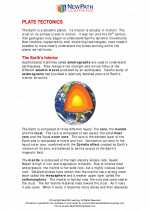 Plate tectonics
Plate tectonics  Activity Lesson
Activity Lesson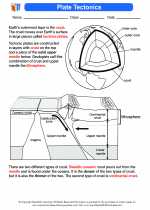 Plate Tectonics
Plate Tectonics  Worksheet/Answer key
Worksheet/Answer key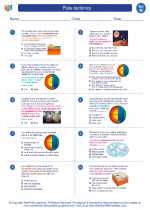 Plate tectonics
Plate tectonics  Worksheet/Answer key
Worksheet/Answer key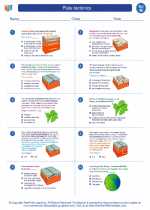 Plate tectonics
Plate tectonics  Worksheet/Answer key
Worksheet/Answer key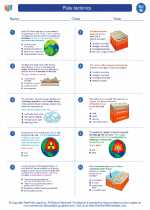 Plate tectonics
Plate tectonics  Worksheet/Answer key
Worksheet/Answer key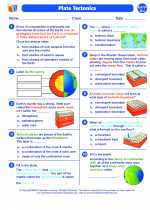 Plate tectonics
Plate tectonics  Vocabulary/Answer key
Vocabulary/Answer key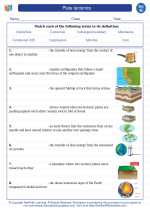 Plate tectonics
Plate tectonics  Vocabulary/Answer key
Vocabulary/Answer key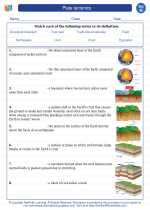 Plate tectonics
Plate tectonics  Vocabulary/Answer key
Vocabulary/Answer key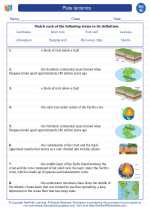 Plate tectonics
Plate tectonics  Vocabulary/Answer key
Vocabulary/Answer key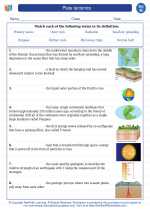 Plate tectonics
Plate tectonics  Vocabulary/Answer key
Vocabulary/Answer key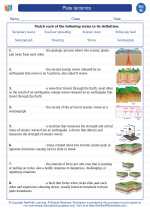 Plate tectonics
Plate tectonics  Vocabulary/Answer key
Vocabulary/Answer key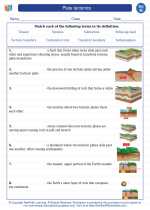 Plate tectonics
Plate tectonics  Vocabulary/Answer key
Vocabulary/Answer key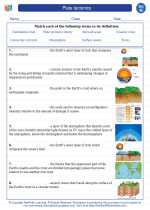 Plate tectonics
Plate tectonics 

 Activity Lesson
Activity Lesson
 Worksheet/Answer key
Worksheet/Answer key
 Worksheet/Answer key
Worksheet/Answer key
 Worksheet/Answer key
Worksheet/Answer key
 Worksheet/Answer key
Worksheet/Answer key
 Vocabulary/Answer key
Vocabulary/Answer key
 Vocabulary/Answer key
Vocabulary/Answer key
 Vocabulary/Answer key
Vocabulary/Answer key
 Vocabulary/Answer key
Vocabulary/Answer key
 Vocabulary/Answer key
Vocabulary/Answer key
 Vocabulary/Answer key
Vocabulary/Answer key
 Vocabulary/Answer key
Vocabulary/Answer key
